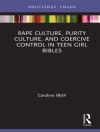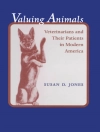During the three decades from 1945 to 1975, the Catholic Church in West Germany employed a broad range of methods from empirical social research. Statistics, opinion polling, and organizational sociology, as well as psychoanalysis and other approaches from the “psy sciences, ” were debated and introduced in pastoral care. In adopting these methods for their own work, bishops, parish clergy, and pastoral sociologists tried to open the church up to modernity in a rapidly changing society. In the process, they contributed to the reform agenda of the Second Vatican Council (1962-1965). Through its analysis of the intersections between organized religion and applied social sciences, this award-winning book offers fascinating insights into the trajectory of the Catholic Church in postwar Germany.
Spis treści
Preface
List of Abbreviations
Introduction
Chapter 1. Counting Piety: Church Statistics and its Uses
Chapter 2. In Search of Social Reality: Sociography
Chapter 3. Representation and Contestation after the Council: Opinion Polling
Chapter 4. Planning the Future of the Church: Organizations Research
Chapter 5. Psychology and Group Dynamics as “Humane” Scientific Approaches
Conclusion: The Scientization of the Church as an Encounter with a Dangerous Modernity
Bibliography
Index
O autorze
Benjamin Ziemann is Professor of Modern German History at the University of Sheffield. He is the author and editor of numerous books, including Contested Commemorations. Republican War Veterans and Weimar Political Culture (Cambridge, 2013), War Experiences in Rural Germany, 1914-1923 (Oxford, 2007), and, as co-editor, Reading Primary Sources (London, 2008). He has held Visiting Fellowships at the University of York, Humboldt University Berlin and at the Norwegian Nobel Institute in Oslo.












